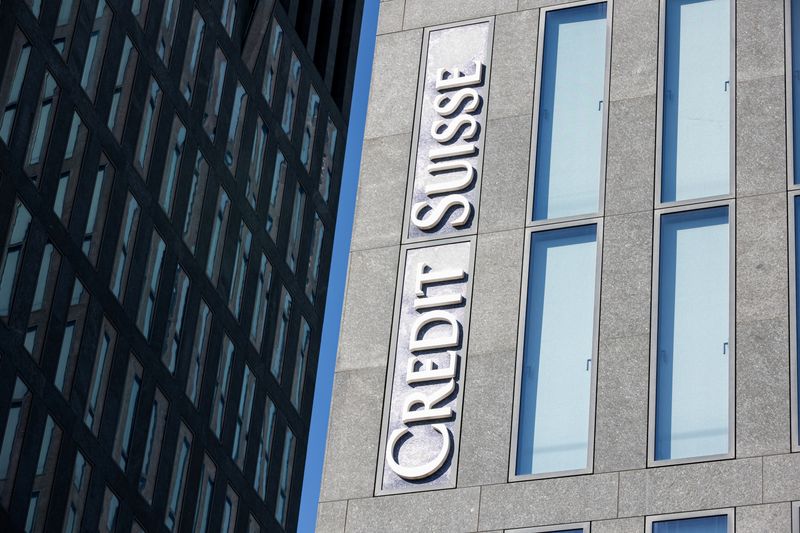Investing.com’s stocks of the week
By Herbert Lash
(Reuters) -A derivatives committee ruled on Monday that a bankruptcy credit event had not occurred in relation to Credit Suisse, quashing investors' efforts to trigger a payout on credit insurance linked to the Swiss lender.
The ruling was in response to an investor question about $17 billion in senior and subordinated bonds issued by Credit Suisse whose holders were wiped out when the Swiss bank was taken over by UBS in March in a state-assisted deal.
The ruling upended a long-established practice of giving bondholders priority over shareholders in a debt recovery.
It should not surprise investors who have read the Credit Suisse prospectuses, said Philip Jacoby, chief investment officer at Spectrum Asset Management in Stamford, Connecticut, one of the biggest holders of the bank's debt months before its takeover.
"If bad things happen you run the risk of being written down to zero. Anybody who thinks otherwise is a little hurt, to say the least."
Unlike a bankruptcy proceeding in court, regulators have determined what class of securities were "bailed in" and written down to zero, and what classes were preserved, Jacoby said.
"The big surprise is what happened to the common equity. The common equity had some value preserved, rather than getting written down to zero too."
The debt in question included standard European corporate, standard European financial corporate and standard European contingent convertible (CoCo) financial corporate transaction types, the EMEA Credit Derivatives Determination Committee (CDDC) said in a statement on its website.
The DC reviewed the information submitted with the question and decided it not confirm a credit event, the committee said.
"The DC determined that a Bankruptcy Credit Event had not occurred," the statement said.
Credit Suisse was not part of the convened committee regarding the question that was posed to the committee as the bank abstained under the committee's rules.
Investors tried last week to secure a payout on the credit default swaps (CDS) linked to Credit Suisse debt by seeking a ruling on whether a so-called government intervention credit event had occurred.
However, the committee decided this was not the case last Wednesday.
A payout on the instrument that insures investor's exposure against default of a company or country only triggers if the committee rules that a credit event has happened.
Hundreds of lawsuits have been filed over terms of the emergency deal to save Credit Suisse, which was hammered out over a March weekend amid turmoil in the global banking sector.
The amount of gross notional outstanding CDS linked to Credit Suisse bonds stood at more than $19 billion in March, according to Depository Trust & Clearing Corporation data. The DTCC provided no details of what seniority of bonds the CDS contracts were written against.
